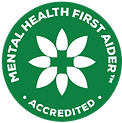top of page

The stuff you want to know, before you have to ask any questions
Widget Didn’t Load
Check your internet and refresh this page.
If that doesn’t work, contact us.
Did I miss something?
I am happy to answer any question you have about counselling. Reach out below.
Get in Touch
Offering online and in person counselling support from Wagga Wagga, NSW.
Open by appointment
Tuesday - Thursday: 6pm - 8:30 pm AEST
Friday: 10am - 5pm
ACA member counsellor # 28687
Working with children check # WWC0574695E


For purpose, for passion, for people.
bottom of page


